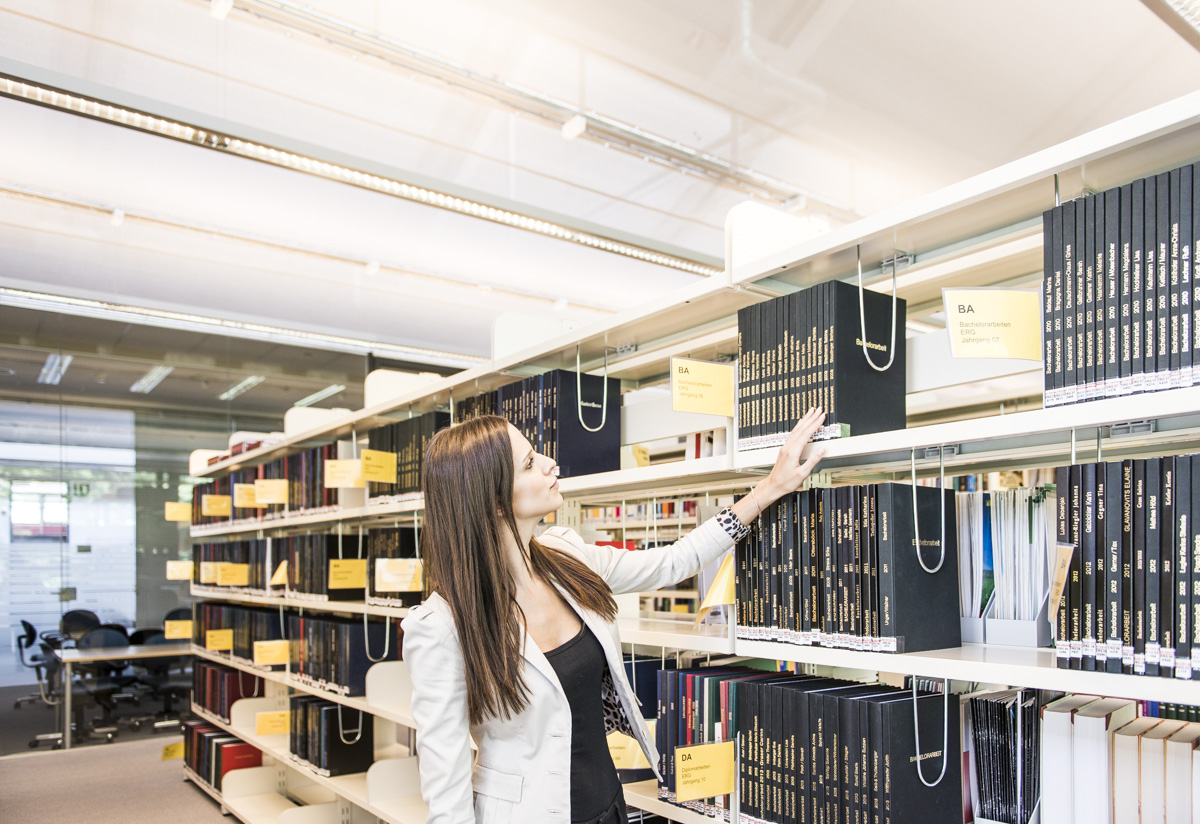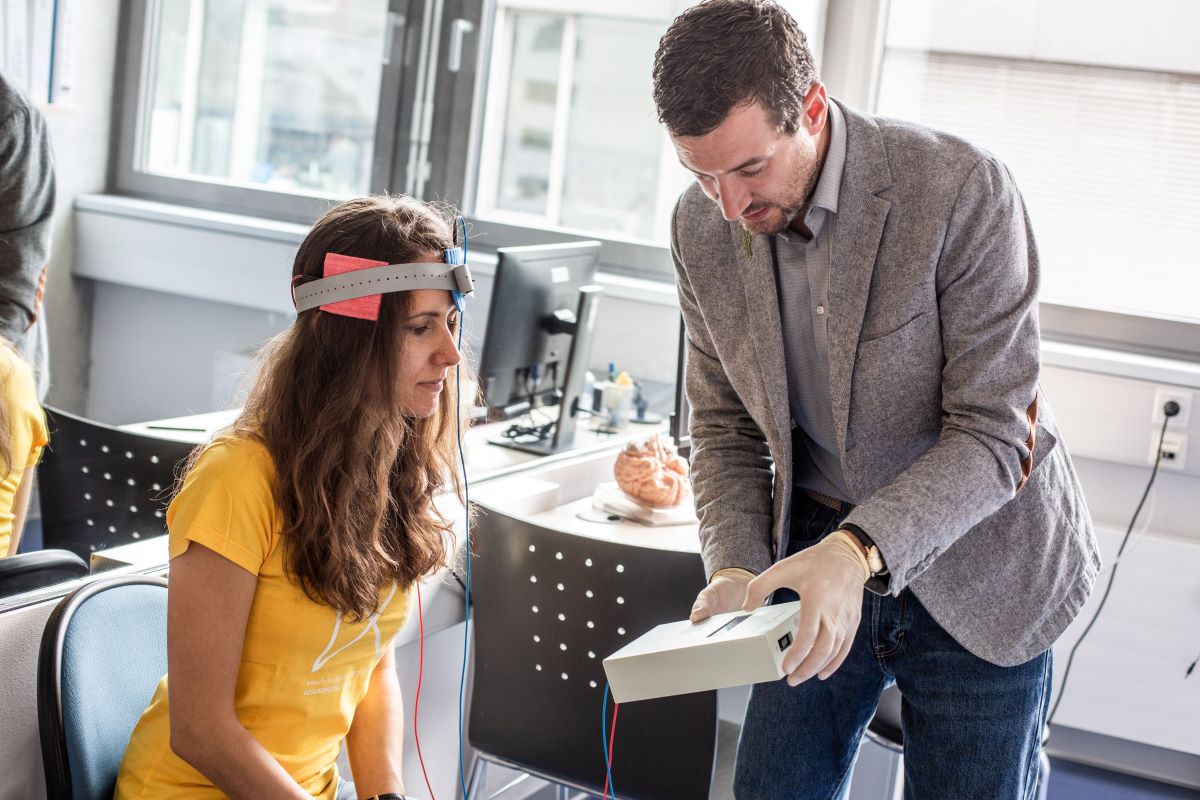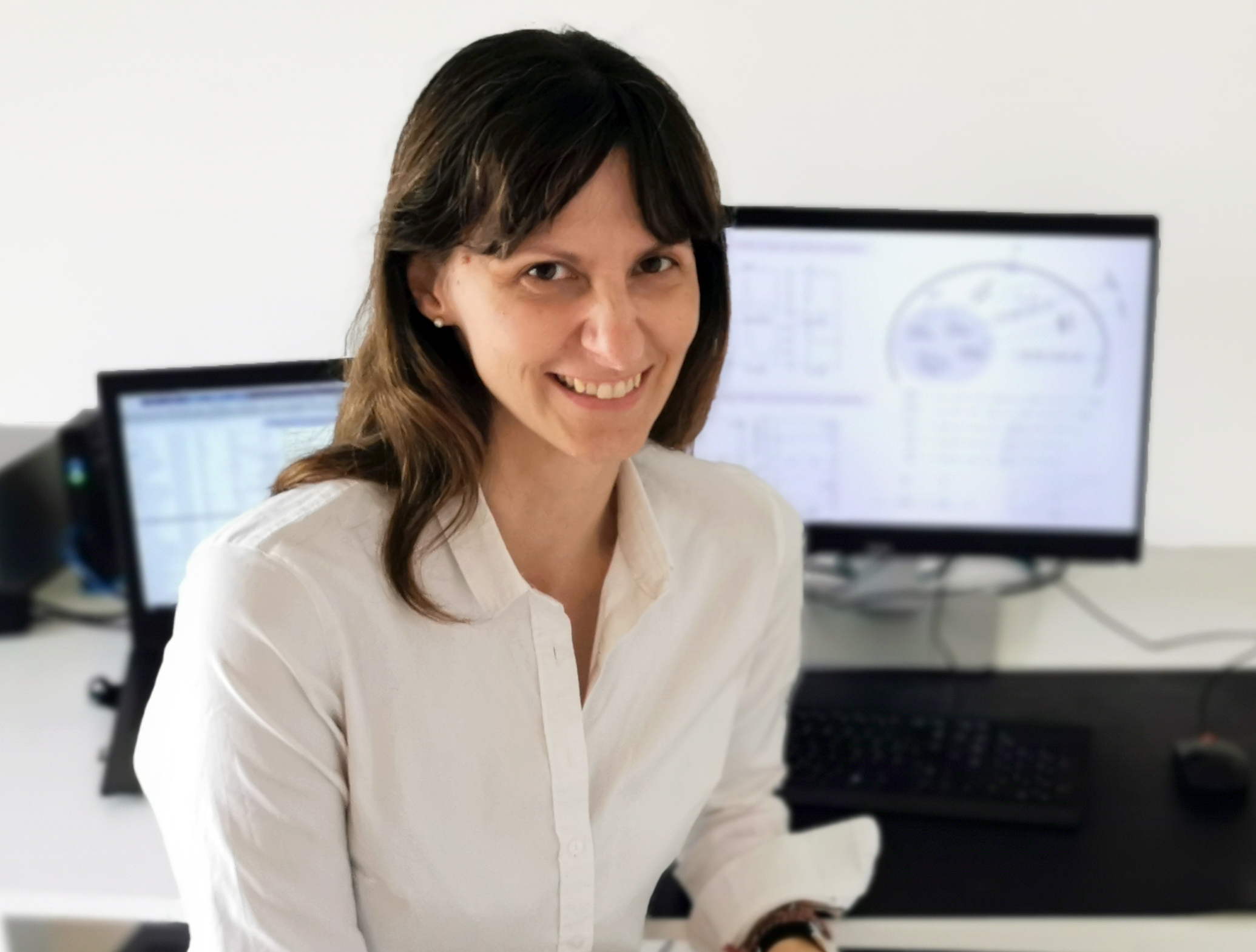Health. Research. Excellence. The Health Research Award was conferred on Sabrina Stani and Kevin Theuermann in mid-March 2018 for their Master’s theses on the eHealth programme. They report on their research areas, the advantages of a Master’s degree and their plans for the future.
eHealth: Prize-winning Master’s theses
Eva-Maria Kienzl, 25. May 2018
In their theses IT students often address current issues with a practical application. This is reflected in the many prizes they win. (© FH JOANNEUM / Marion Luttenberger)
There are many advantages in taking a Master’s degree after a Bachelor’s: at the Department of Applied Computer Sciences the Master’s courses are organised on a part-time or work-friendly basis. That means students can work before graduating, giving them an advantage when beginning their careers. This hard work also pays off in the form of higher starting salaries when students enter their profession.
During the two years of the Master’s degree programme at FH JOANNEUM students can extend and deepen their particular areas of interest, whether in compulsory elective subjects, projects or their Master’s thesis. Another advantage is that on completion of this programme graduates can enter a research-based doctoral programme.
On the eHealth programme students tackle current research problems in their Master’s thesis. Sabrina Stani and Kevin Theuermann presented particularly good answers in their theses, which were among the winners of the Health Research Awards.
What subject did you address in your thesis?
Kevin Theuermann: “I looked into standardising data for e-health services. During treatment these data are collected by a variety of devices in a range of different formats, and all on an ongoing basis. This poses new challenges when it comes to integrating data into clinical documents. My thesis was a proposal for an Austrian-wide standard taking into account the existing national standards and the requirements of the Electronic Health Record (ELGA)”.
Sabrina Stani: “I looked at automation in developing age-appropriate mobile assistance systems, so-called AAL applications (Active and Assisted Living). The focus was on the automatic testing of design requirements.“
What subject matter from the programme did you apply in your thesis?
Kevin Theuermann: “The programme offers a comprehensive overview of the standards, terminologies and codes used in preparing clinical documents. Course lectures such as those on software development were also important because I finally created a prototype which can automatically generate clinical documents.”
Sabrina Stani: “For me the main focus was on the principles of mobile Android software development. The programme provides valuable knowledge about the importance of designing age-appropriate applications, and understanding the requirements this places on the design itself.”
In which area of the degree programme did your Master’s thesis help broaden your knowledge?
Kevin Theuermann: “I learned more about the HL7 standard, one of the most common and widely-used healthcare standards. There are different versions of HL7 which are used for applications such as standardised data storage and exchanging clinical documents. Luckily I was able to spend enough time on getting to grips with the details of the complex model structure.”
Sabrina Stani: “Working on my Master’s thesis involved learning much more about mobile software development. I also gained new insights into the challenges of designing for elderly people.”
How have you benefited by graduating with a Master’s?
Kevin Theuermann: “The Master’s programme offers a broad overview of the interdisciplinary nature of the subject. This diversity of subject areas has been a great help in better identifying my own interests.”
Sabrina Stani: “I’ve benefited from learning new subject matter not covered in the Bachelor’s programme. This includes learning about a whole range of healthcare topics. If you’re working on software in the AAL sector you have to be aware of countless aspects, such as the needs of elderly people, and healthcare workflows. This understanding is vital in marketing a product successfully.”
What do you plan to do now that you’ve finished studying?
Kevin Theuermann: “At present I’m studying for my doctorate in eGovernment and IT Security at Graz University of Technology. I would like to write my thesis on this subject, and then eventually focus on IT security in healthcare. With the rapid advancement of mobile devices and the Internet of Things, there’ll be plenty to do.”
Sabrina Stani: “I’m already employed by exthex GmbH in Graz, where I’ve worked part-time ever since my compulsory internship on the Bachelor’s programme. We are currently bringing our AAL solution – Emma – to market. My own ambition is to successfully launch Emma so that many elderly people can stay in their own homes for as long as possible and enjoy a better quality of life.”
The Award
Each year the Health Research Awards are conferred on practical research projects in the categories of eHealth, Healthcare, Health Promotion and Healthcare Management. The awards ceremony was held on 14 March 2018.
Note: Both the eHealth Bachelor’s and Master’s degree programmes are technical courses which stand out, not just due to the proportion of female students: over half the students on both the Bachelor’s and Master’s degree programmes are women.










